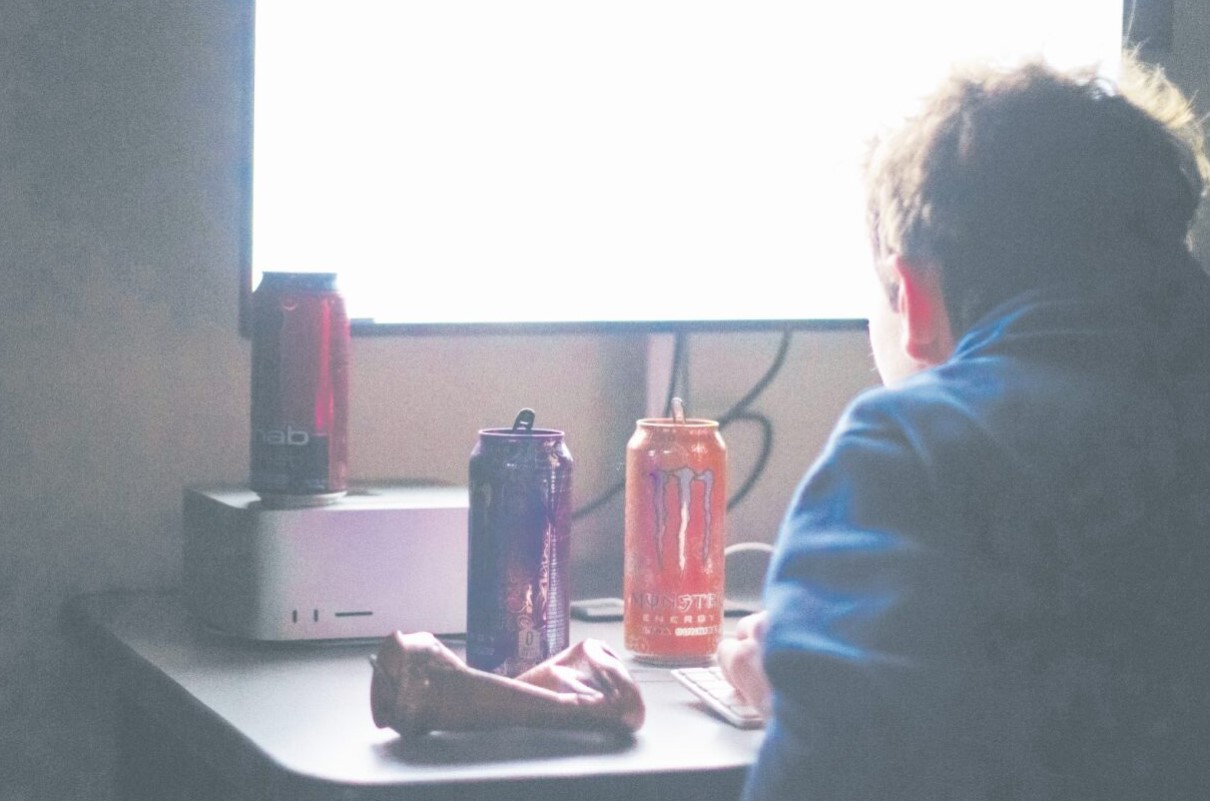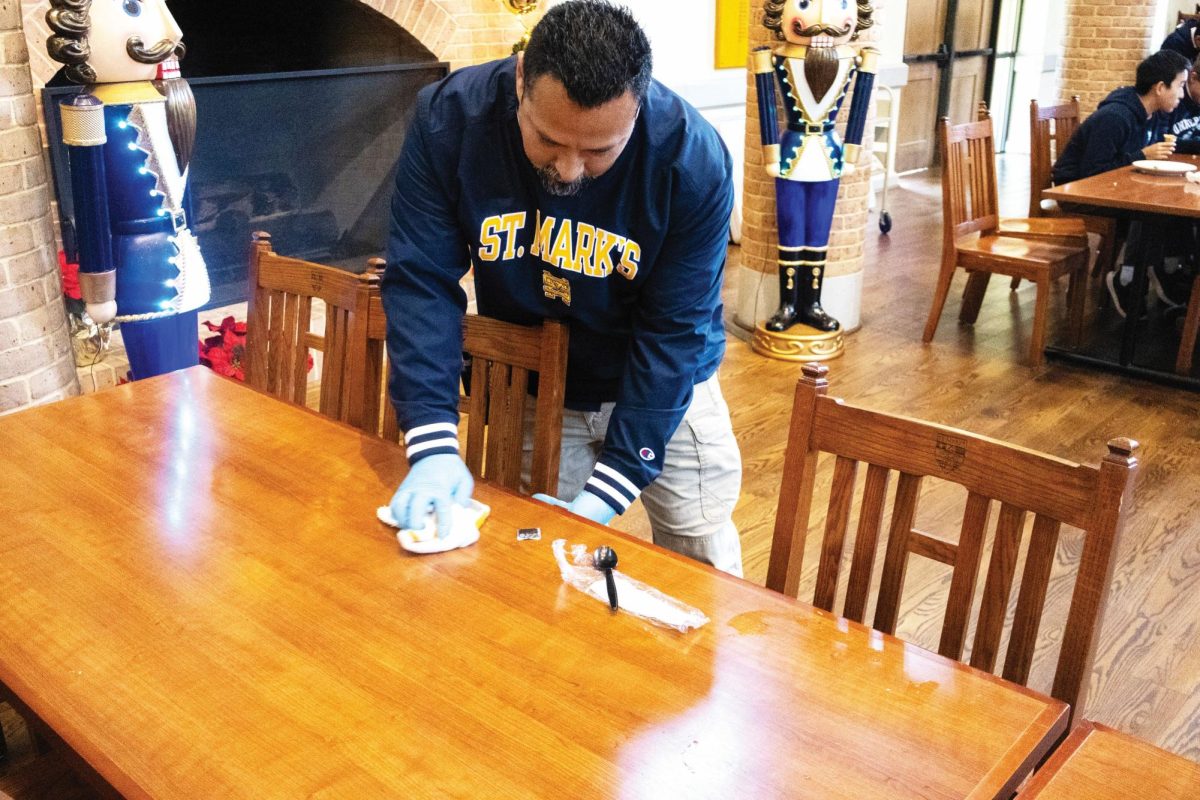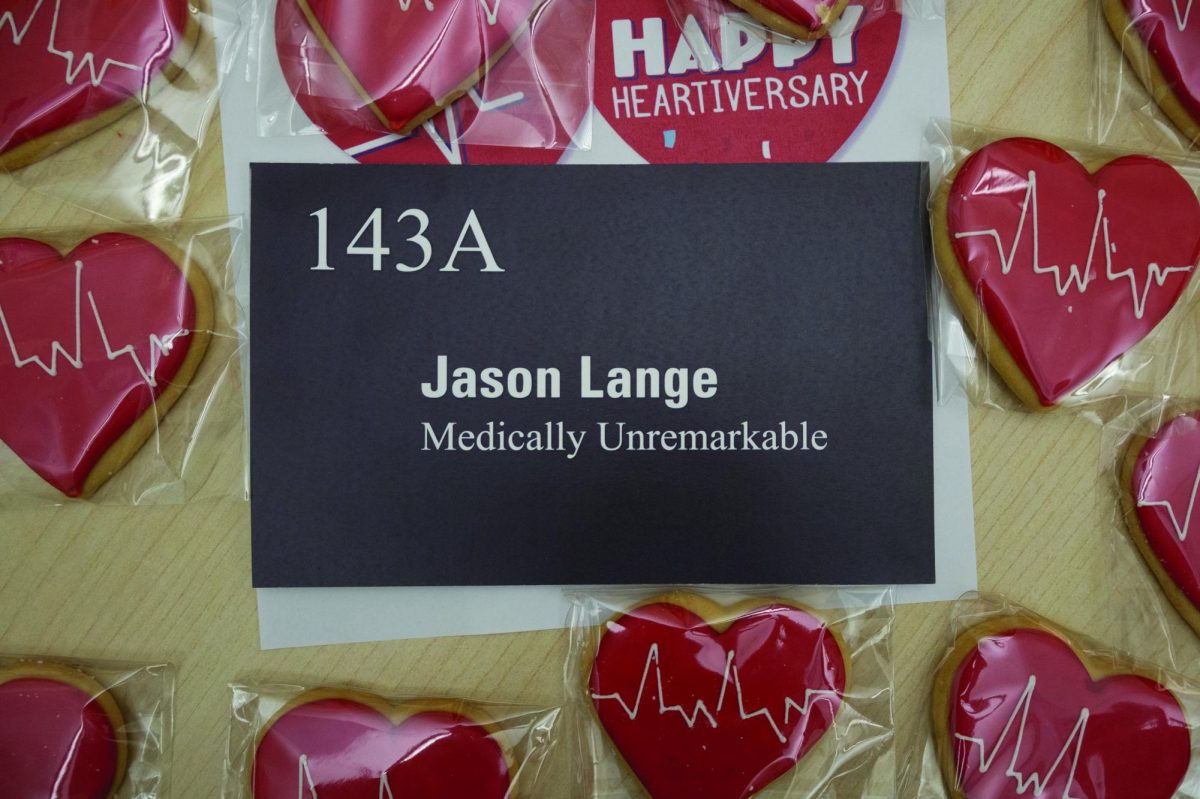2 a.m.: He takes a sip and heads to bed.
8:30 a.m.: He takes a sip and begins school.
4:45 p.m.: He takes a sip and begins his workout.
7 p.m.: He takes a sip and begins his school work.
1 a.m.: He takes a sip and continues working.
2 a.m.: He takes a sip and heads to bed.
He just needs the energy.
With every sip, his body can keep moving.
With every sip, the work seems more bearable.
With every sip, he knows he can make it.
The health consequences don’t matter.
The shallow look in his eyes doesn’t matter.
The loud thump of his heartbeat doesn’t matter.
He just needs the energy.
Energy is at the core of typical Marksman schedule on campus. Every student shares this common necessity, especially when assignments pile up as the school year nears its end in the grueling high school years.
Finishing an essay due at midnight. Rapidly completing homework before the next day of classes. Fighting to stay awake during lectures despite sleeping four hours every night for the past week.
Considering the heavy workload of students through academic, extracurricular and athletic requirements, energy drinks are a helpful, convenient resource to power through a stressful day.
According to Statista, people between the ages of 18 to 29 years old consume 33 percent of all energy drinks in the U.S. However, the unhealthy consequences of energy drink overconsumption have begun to garner the attention of many.
Sophomore Reagan Graeme thinks the sheer volume of assignments and other academic-related responsibilities amplify students’ desires for energy drinks.
“I think (energy drinks) are definitely a way for kids at St. Mark’s to try to get more energy,” Graeme said. “A lot of times we’re running on little sleep with a high workload, and that’s something that can make you be more attentive in class, be more focused during a test, get more homework done – it can give you a leg up.”
Graeme, who involves himself in many activities and commitments around campus, tries to keep his energy drink consumption in moderation. He sees the drinks as a tool to be more productive during stressful times, thus facilitating academic success.
“I think the way I’ve handled using energy drinks is appropriate,” Graeme said. “It seems some students do have a dependence on caffeine and energy drinks, and they will have multiple energy drinks a day.”
In contrast to Graeme’s relatively low energy drink intake, senior Sebastian Kiehn had developed a much larger dependence on them in the past. However, after two to three years of heavy consumption, Kiehn finally decided to stop his caffeine addiction.
“Right now, I drink zero energy drinks a day because I quit a while ago,” Kiehn said. “When I first started to drink them, I had around two to three Red Bulls a day, which looking back seems horrible. I was definitely addicted to them and drank them for quite a while before I stopped.”
The main reason for Kiehn’s eventual decision to quit was his health. From violent headaches to unusual tingling sensations throughout his lower body, Kiehn realized the negative effects that his caffeine dependence had on his physical health and eventually his mental health as well.
“When I first started drinking energy drinks, I wasn’t bothered by the health risks of them because I didn’t really care about my health as much,” Kiehn said. “But now, I have matured more, and I’ve become invested in my health by going to the gym and watching what I’m eating, so stopping drinking energy drinks was a result of me becoming more mindful of my health in general.”
In athletics, energy drinks provide athletes with the short-term energy required to complete workouts or compete in games. Athletic trainer Natalie Bumpas has observed an increase in their consumption and is concerned about the high levels of usage among athletes.
“They’re getting their energy because those things are loaded with caffeine and sugar,” Bumpas said. “They are unhealthy because they will make your blood pressure spike. And an optimum performance is if you can keep your blood sugar steady at healthy levels throughout the day.”
While many athletes turn to energy drinks for a quick energy boost, there are healthier, long-term strategies they can begin adopting right away.
“They should pay more attention to their sleep at night, because what’s happening is they’re staying up till two o’clock in the morning doing homework and then they have a game after school,” Bumpas said. “They’re not getting consistent or enough sleep. That’s huge for athletic performance — getting a regimented sleep routine and quality sleep and consistent enough sleep. Typically, teenagers need more sleep because they’re growing and changing.”













